Illegal trading of fuel (popularly known as Changanya) is on the rise despite efforts to abolish the act.
The illegal practice has continued despite several interventions by the authorities, who have carried out sensitization programmes on the dangers of such acts.
The regulator, Energy Regulation Board (ERB), has in the recent past pounced on the illegal traders for selling contaminated petrol and diesel but this has not stopped them from engaging in such activities.
Read more: Civil society group, CSPR, urges government to stabilise fuel prices
Illegal vendors use plastic containers from which they dispense fuel into the vehicles, especially on Lusaka’s Los Angeles Road and Industrial area, and now spreading to areas such as 6, 10, and 15 miles in Chibombo.
Investigations done by Zambia Monitor reveal that the fuel dealers supply or sell the product at K3.50 less than the fuel sold at the filling stations.
At 10 miles lay by station, a hub for trucks, drivers make stops to park their vehicles for a night or two before proceeding early in the morning on their journey.
One of the dealers told Zambia Monitor that the fuel was being supplied to them by truck drivers hired by Oil Marketing Companies (OMCs) to deliver the commodity to various places.
Findings are that the operation of ordering fuel from different truck drivers usually takes place in the night to avoid being caught during the day.
He stated that once the truck driver had some left over diesel in his fuel tank, they resort to selling to the dealers at a cheap price.
A dealer said a 20 litre diesel was ordered at K40 and then after being mixed with kerosene, si sold to the public at K50 for a 10 liter and K120 for a 20 liter diesel, adding that fuel is usually K2 more expensive than the diesel prices.
Fuel and diesel, supplied by illegal traders, have been found not to be of good quality, thus leaving room for negative impact on automobiles.
Samson Mbewe, 35, from six miles area said that the illegal trade of fuel by various individuals in his area needs to be stopped.
Mbewe whose vehicle got damaged as a result of using low standard fuel, said that the fuel looks to be of high standard but has negative effects on a car.
“The traders will make the diesel or fuel appeal to the buyer by charging less, but what the buyer doesn’t know is that the products they have are very dangerous to a motor vehicle. After some months of using the fuel from these traders, I noticed the speed of my vehicle had declined, and service was needed to rectify the problem which cost me a lot,” he said.
The story is not different from that of Thomas Mtonga of 10 miles area who also fell victim to the low standard fuel being supplied in the area.
Mtonga regretted using the product on three occasions
as it led to his car having a problem with the fuel filter.
“I used the fuel on three occasions i cannot lie, but I regret using their products. When I asked them where they get it, they said straight from the fuel tank and into the containers, but they left out the part where they mix it with other stuff like kerosene which affected my car in the filter area,” he said.
Mechanical Engineer, Joseph Zulu, 35, explained what happens in the internal part of an engine, once adulterated gasoline has been used.
Zulu said that performance and emissions of internal combustion engines are sensitive to fuel used as they are designed to run on fuels with certain specifications.
“When an engine is run on a fuel with altered specifications, the performance and emissions of the engine may deteriorate and durability and reliability of the engine components may be affected. Fuel adulteration is often a sneaky operation in which a higher priced fuel, such as gasoline, is mixed with other cheaply available hydrocarbon fuels or solvents to produce the changanya at last.
“This changes the composition and physical properties of the base fuel, and use of such fuels often results in reduced drivability of vehicles and increased tailpipe emissions,” he said.
Zulu said that as a professional, he has been very wary of illegal fuel traders, adding that motorists should not support their business by buying their products as that will not help in stamping out the practice in the long run.
A critical question yet unaddressed is why the authorities have failed to stop the operations of illegal trade of fuels?
A few years back, ERB introduced Fuel Marking (FM)
aimed at increasing government revenue by combatting the infamous changanya (adulterated) and rampant dumping of smuggled or transit fuel in Zambia.
Licensees found abrogating the 2017 Energy Regulation (Petroleum Marking and Monitoring) Regulations Statutory Instrument (SI) risked having their licenses suspended or revoked, fined 100, 000 penalty units (K30, 000) or imprisonment for a period of not exceeding two years or the latter two charges.
ERB Public Relations Manager, Namukolo Kasumpa, said consumers play an important role in raising alarm on product quality concerns.
“The ERB wishes to emphasise that the quality of fuel sold by illegal fuel vendors poses a great risk as it is from illegal sources and as such cannot be guaranteed by the ERB, by refuelling from illegal fuel vendors, motorists risk damaging their vehicles, and further, they will have no recourse as they are perpetrating criminal activities,” she said.
Kasumpa noted that the petroleum sector was characterised by
challenges in meeting the required specifications by operators throughout the supply chain, with the major causes of compromise to fuel quality being contamination by adding sub-standard additives or kerosene (changanya) and rampant dumping.
“These vices, apart from depriving government of huge revenues through evasion of tax, affect the level playing field for other legitimate industry players, contribute to poor quality fuel that affects the general motoring public and harm the environment and public health from contaminated fumes,” she said.
She added that they had designed the FM programme to safeguard the interest of all stakeholders in the petroleum industry and that it was a technology that was being employed in various parts of the world.
Examples include African countries like Ghana, Cameroun, Ivory Coast, Swaziland, Tanzania, Uganda, South Africa, Kenya and the Democratic Republic of Congo.
As good as fuel marking may sound, others have argued that strict watch on the vendors will not be 100 percent, as compared to fuel marking at filing stations.
Peter Daka 42, a resident of 10 miles township, said that ERB and the relevant authorities have to make sure that they apprehend people supplying fake fuel, or test their products to see if they are okay for use.
Daka said that fuel marking will be positive to the filling
stations, but will not be effective on the illegal traders as most of them hide while selling the product.
“It is going to be positive for all filling stations because most of
them will not have anything to hide. The problem of fuel marking will come in as ERB tries to locate and follow the illegal traders, how are you going to taste their products if you cannot find or see them as most of them hide while selling their products,” he said.
Daka said that raids and consistent analysis was needed by ERB in specific areas, so that culprits involved in the illegal trading of fuel are brought to book.
Environmental Health Specialist, Daniel Simuwe, said it was not only illegal to trade in petroleum products but that it was also highly hazardous to the environment.
Simuwe said the incorrect storage of flammable products like petrol was a danger to the vendor’s life and the environment.
“The quality of fuel bought from illegal fuel vendors cannot be guaranteed due to fuel adulteration commonly known as Changanya . What the vendors don’t know is that the storage facilities they have are most likely to be small rooms that are not safe for storing of fuels, anything can react causing a flame of some sort to spark. The products are also harmful to the environment as they produce combustions that
pollute the atmosphere,” he said.
As ERB and other relevant stakeholders fight to stop the increased trading of illegal fuels, it is important that they consistently carry out checks in specific areas to supplement the intended fuel marking project.
Contributed by Harbguy Mwambazi
WARNING! All rights reserved. This material, and other digital content on this website, may not be reproduced, published, broadcast, rewritten or redistributed in whole or in part without prior express permission from ZAMBIA MONITOR.


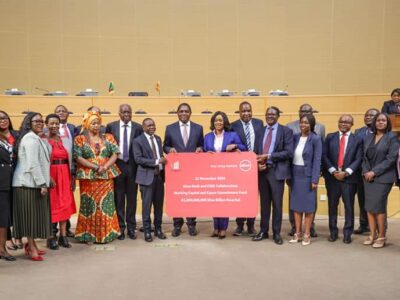
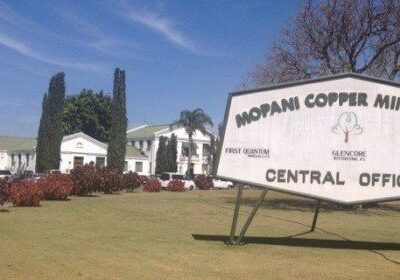
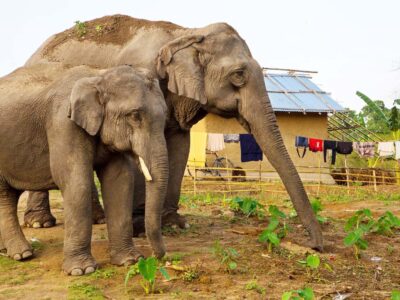
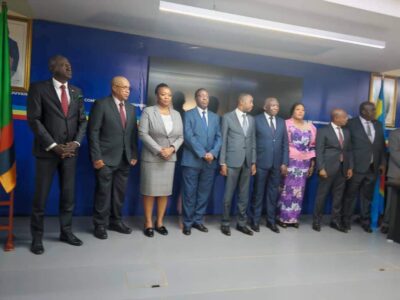

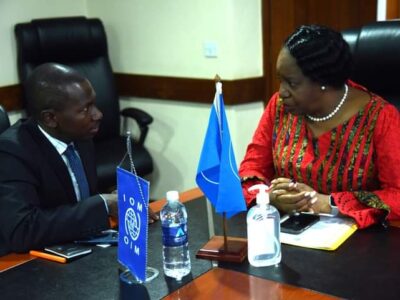




Comments